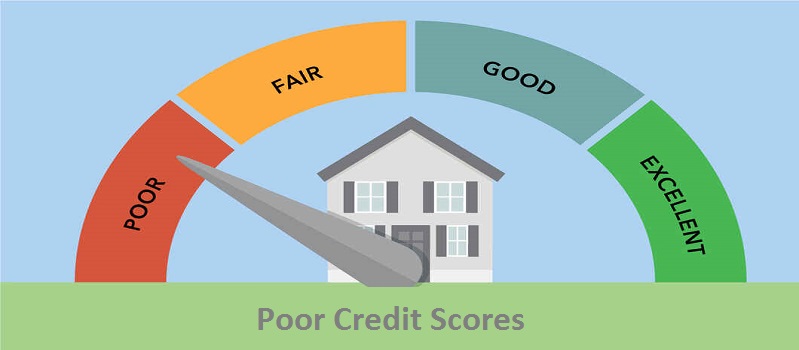Credit scores are pivotal not just for your loans but in the whole of your financial lifecycle.
It may be used to select (decide) the tenants while renting out the apartment. Often the credit scores are used by insurance companies to fix premiums for insurance coverage for auto and house owners.
Sometimes, these scores are also considered while giving a job. The credit scores can sometimes even determine which mobile phone plan you can get and the deposit required for utilities.
Hence with better credit scores, you stand better chances of bagging lower interest. Also, you get better coverage, properties of your choice and even jobs. And, of course, bad credit scores might cost you a lot in terms of higher interest on the house or personal or auto loans.
The importance of credit score
With so much importance attached to it, there are umpteen misconceptions about credit scores. Some of them can really affect and hurt your score.
For example, if you may take quick loans, you may not face any disadvantages of it. In the UK, many people avail of these loans to fulfil their financial commitments.
But, you need to understand the concept of credit scores and how credit scores operate.
A recent survey by ‘Credit Card Insider’ unearthed some of the common myths and misconceptions that are believed about credit scores.
Before we get into the myths or misinformation we may hear, it is important to understand that the credit score is specific to you. It only contains your personal information and your lending history.
We will demystify some of the myths or misinformation regarding the world of credit here. It will help you to make informed financial decisions.
You must read below if you are worried about the changes in your income post the COVID crisis and how your scores are impacted.
While most of you would be aware that you have a credit score, a lot less if you really understand how it works.
Let’s burst some of the myth bubbles.
1. You can be blacklisted
To your luck, there is no such blacklist, however poor/low your score may be. Lenders refer to the information about your credit report. It also includes your application form, the details you have put in and other account-related information that they already have.
Now, if you do have a poor history with lower scores, bad borrowing etc., you are likely to get accepted but will likely be offered lower credit limits and higher interest rates.
So good news is that even with unfavourable history, your application may get selected though it may not get favourable rates/limits.
2. Credit Score is affected by the people you live with
Credit reports or scores are for an individual. They contain just personal information, financial history, and other information. This is all pertaining to an individual. It is irrespective of whom you live with or is friends or family with.
Also, being in a relationship will also not link or impact your report or finances. Living or related to someone doesn’t impact your credit reports.
The only possibility is when you have had a financial connection with someone, i.e. joint mortgage or credit card. Hence in such cases, your scores would be linked and impacted by the other history.
If you have had a joint account with someone in the past but do not share the same in the present, you can apply and get a financial disassociation with all the credit agencies.
In such cases, the lenders may be told to look at the joint person’s credit report in addition to yours as their financial situation could affect your ability to repay.
3. Scores are affected by earlier house occupants
This is one of the most common myths people hear around. This is especially for people living and looking for rented accommodations.
It does not matter who was living at that address before and what financial history he/she/they may have. It has no impact on your finances or your credit score report.
The earlier person might be rich or a pauper, a person with excellent scores or bad history of defaulting. Nothing will reflect in your credit score report.
If by any chance you are finding letters or posts dropping at your doorstep addressed to the previous occupant, all you need to do is to mention that they do not live here anymore and put that on the post box.
4. My credit score is fixed
There are many credit reference agencies in the world giving you scores and ratings. Hence the score might differ as the scales would be different from one agency to another.
Hence there isn’t any universal credit score, but yes, the higher the score for each agency, the better it is. For example, if you go for electric car finance deals, you may not face any credit score issues. But you have to be careful while availing of any other loans.
5. Lesser borrowing will give you a better score
The whole point of a credit information report and score is to let the lender know of your past borrowing. It also includes repayment history and habits.
Are you at risk for the lender or easily will repay the loan? This is critical for any lender to assess. Hence if you’ve never borrowed lesser in the past, this will provide lesser information to the lender.
Hence it increases the difficulty for the lender to decide on your repayment capacity. In fact, making it difficult to decide might have an adverse effect on your credit score.
On the other hand, we all have limits attached to the amount that can be borrowed. Hence overdoing with loans, credit cards, and overdrafts may put pressure and adverse effect on your score. Hence striking a balance is important.
Conclusion
Do not fear a bad credit score, as you can improve it by using the right measures. Upon improving your credit score, you can borrow money easily and with favourable terms and conditions.
Credit scores are the major factors in your borrowing and determine your financial life. With the right credit score, you can stabilize your finances and stay happy.

Emma Anderson is a financial advisor at Quickloanslender who always believes in researching hard to know her clients’ financial problems. She takes the time to understand their financial wants and needs to write the blogs on them as the solutions. In her long 14 years of experience, she has written plenty of blogs on the financial and business sectors of the UK.
Emma Anderson has been recognised for her work in financial planning and her blogs are regularly published in the website of Quickloanslender. As far as her educational qualification is concerned, she has done Masters in Accounting and Finance, and done PG Diploma in Creative Writing.






